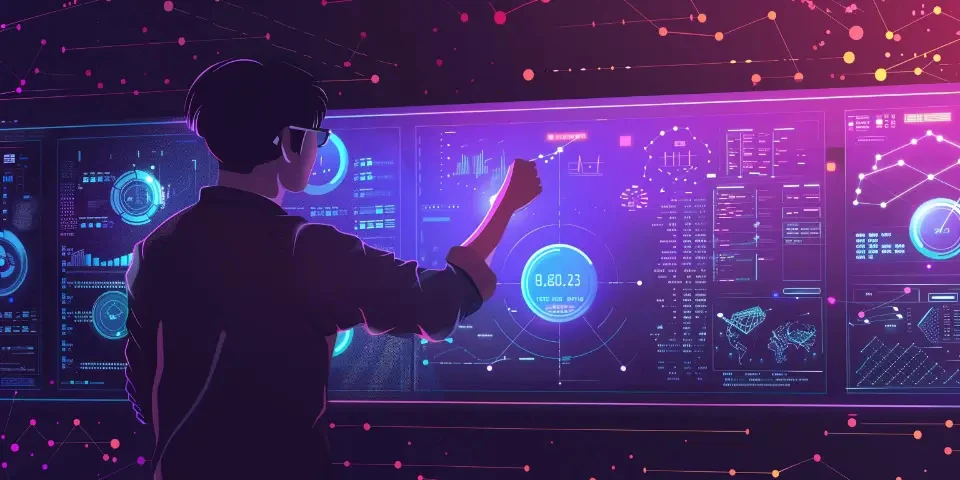The Future of AI Exploring the Boundaries of Artificial Intelligence
The field of artificial intelligence (AI) has seen remarkable advancements in recent years, and the possibilities for its future are both exciting and thought-provoking. As AI continues to evolve, it is essential to explore the boundaries it can push and the potential impact it may have on various aspects of our lives. In this article, we will delve into several key areas where AI is poised to make a significant difference and examine the challenges and opportunities that lie ahead.
1. Autonomous Vehicles and Transportation
AI has the potential to revolutionize transportation by enabling fully autonomous vehicles. These vehicles can enhance road safety, reduce traffic congestion, and optimize fuel consumption. However, concerns regarding ethics, liability, and regulations must be addressed to ensure the safe integration of autonomous vehicles into our society and infrastructure.

2. Healthcare and Personalized Medicine
AI holds immense promise in the field of healthcare, from diagnosing diseases to developing personalized treatment plans. Machine learning algorithms can analyze vast amounts of data, allowing for early detection of illnesses and more efficient patient care. Moreover, AI can aid in drug discovery by predicting the effectiveness and potential side effects of different compounds.
3. Education and Adaptive Learning
AI-powered education systems can adapt to the individual needs of students, providing personalized learning experiences. Intelligent tutoring systems can identify knowledge gaps and tailor instructions accordingly, leading to improved educational outcomes. However, ethical concerns regarding privacy and the potential for bias in AI algorithms must be carefully considered to ensure inclusive and fair education for all.
4. Customer Service and Chatbots
Chatbots, powered by AI, are already playing a crucial role in customer service by providing quick responses and assistance. As natural language processing capabilities improve, chatbots can offer more human-like interactions, enabling businesses to deliver enhanced customer experiences. However, striking the right balance between automation and human intervention is essential, as some queries may require human empathy and problem-solving skills.
5. Cybersecurity and Threat Detection
AI has the potential to augment cybersecurity efforts by detecting and responding to threats in real-time. Machine learning algorithms can analyze vast amounts of data, identifying and predicting potential security breaches. However, this technology also raises concerns about the potential for AI-powered cyberattacks and the ethics of deploying autonomous systems to counteract them. Striking a balance between security and privacy is crucial.
6. Environmental Conservation and Sustainability
AI can contribute to environmental conservation efforts by analyzing data from sensors and satellite imagery, predicting environmental changes, and aiding in resource conservation. For example, machine learning algorithms can optimize energy consumption, minimize waste, and facilitate sustainable agricultural practices. However, it is imperative to ensure that AI algorithms are trained on unbiased and reliable data to avoid reinforcing existing biases and inequalities.
7. Entertainment and Creative Industries
The use of AI in entertainment, such as movie recommendations and content creation, is already prevalent. AI algorithms can analyze user preferences and provide personalized recommendations, enhancing the entertainment experience. Additionally, AI-powered tools can assist in creative tasks like music composition, video editing, and art generation. However, concerns about copyright infringement and the potential loss of human creativity must be addressed.
8. Ethics, Bias, and Fairness in AI
As AI becomes more ingrained in various aspects of our lives, it becomes imperative to address ethical concerns and ensure fairness and transparency. AI algorithms can inadvertently perpetuate biases present in the data they are trained on, resulting in discriminatory outcomes. It is essential to develop frameworks that promote accountability, fairness, and inclusivity in the design and implementation of AI systems.
Frequently Asked Questions:
1. Will AI completely replace human jobs?
No, AI is more likely to augment human capabilities rather than replace them entirely. While certain repetitive tasks may be automated, AI will create new job opportunities and require humans to handle complex decision-making, creativity, and emotional intelligence.
2. How secure is AI technology?
Like any technology, AI systems face security risks. It is crucial to implement robust security measures to protect AI algorithms and the data they process. Regular vulnerability assessments and monitoring are necessary to ensure the integrity and confidentiality of AI systems.
3. Can AI systems be biased?
Yes, AI systems can be biased if trained on biased data or if the algorithms themselves have inherent biases. Careful attention must be paid during the training phase to ensure the data used is diverse and representative. Additionally, ongoing monitoring and evaluation are necessary to detect and rectify any biases that emerge.
References:
1. Johnson, R., & Khoshgoftaar, T. M. (2019). Survey on deep learning with class imbalance. Journal of Big Data, 6(1), 27.
2. Russell, S., & Norvig, P. (2016). Artificial Intelligence: A Modern Approach. Pearson.
3. Vanderburg, W. (2021). Practical Deep Learning for Cloud, Mobile, and Edge. O'Reilly Media.
Explore your companion in WeMate